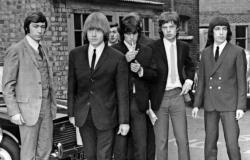Idealism, Rutger Bregman believes, can go well with a dash of vanity. ‘With many do-gooders it is difficult to say where one ends and the other begins.’ The historian Bregman has it on page 29 of his new book Moral ambition about Thomas Clarkson, an Englishman who fought for the abolition of slavery in the decades around 1800. But critics will say he might as well be talking about himself.
Rutger Bregman causes irritation. With some people, because others run away with him – from his previous book Most people are good At least 1.5 million copies were sold worldwide. Even before its successor was in stores, critical columns appeared in newspapers, including in NRC. That irritation probably has something to do with the rather loud PR surrounding his work. The back of his new book contains no fewer than eight blurps (recruiting slogans intended to boost sales), from Bas Heijne (‘confrontational’) and Mabel van Oranje (‘powerful and inspiring’), among others. There are another sixteen others on the inside.
What is also irritating is the content of the book. And that is exactly Bregman’s intention. It is, he writes in his introduction, ‘a book that you may even wish you had never read’.
Too many people, he believes, spend their days doing work that, all things considered, does not contribute much to a better world. Bregman is not talking about teachers, garbage collectors and nurses. They have proven their value during the corona crisis. He is talking about consultants, bankers, corporate lawyers, who earn large salaries but sometimes do more harm than good. Who could do so much more with their talent, if only they would use it in a different way.
For inspiration, Bregman cites examples of people who do use their talent for the benefit of society. Like Rob Mather, a successful manager who had everything in life: a prestigious boys’ school in London, further education at Cambridge and Harvard, a glorious career. Until he saw a broadcast on TV about two-year-old toddler Terri who had suffered horrific burns after her mother forgot to put out a cigarette next to her bed. Mather decided to launch a fundraising campaign (Swim for Terri), which was not very difficult with his network and skills. The campaign was such a success that it left me wanting more. Rob Mather was looking for a bigger purpose. That became malaria: a disease that kills three thousand children worldwide every day and that can easily be prevented (with a mosquito net).
Through Rob Mather, among others, Bregman ended up in the movement known as ‘effective altruism’ (EA). Its adherents look for the highest return for their moral ambition. A well-known example, which Bregman also mentions, is Sam Bankman-Fried. He made a fortune with a cryptocurrency platform, promised to donate his wealth to the best charities, but went bankrupt and was convicted of fraud. The circle around Bankman-Fried had ‘mad plans’, such as bribing Donald Trump not to participate in the American presidential elections, and buying the island state of Naura as a refuge for EA employees.
Moral rearmament
Moral ambition is a more than three hundred pages long call for the reader to take action. To no longer stand on the sidelines and think: who exactly am I? But to ask themselves: what can I do that will really make a difference?
That idea in itself is not new. While reading the book, I occasionally thought of Moral Rearmament, a movement by an American preacher who was also popular in the Netherlands after the Second World War and whose motto was: improve the world, start with yourself. But while Moral Rearmament was literally about working on yourself as a human being, Bregman likes to think bigger. With him it is more likely: Improve the world, start yourself. The world is the goal, not the individual. “Yes,” he writes, “it is tempting to believe that every good deed, no matter how small, counts. That every effort, every protest, every sticker on a lamppost ultimately contributes something. But it does not work like that.’
He sets the bar very high, and that is also irritating. Just being a good person is not enough.
When reading Moral ambition I also had to think about the The seven check marks by Joris Luyendijk, also a well-written book that, if you read a little, you can finish it in one evening. Because let one thing be clear: Rutger Bregman writes it all down smoothly and accessible. He can write. But just like Luyendijk, Bregman is accused of making a show of other people’s ideas.
Of course, not everything he writes is new. Lots of examples in Moral ambition takes Bregman out of the fight against slavery (initially he planned to write a book about the British movement against slavery, he said in NRCpodcast The hour). Bookcases have been filled with books about that struggle in recent years. But Bregman is honest about his sources: at the back of the book there is a long list of notes.
Every now and then he seems to make himself a little bigger than necessary. In the chapter about Rob Mather, the man of the mosquito nets, he writes about an interview he had with him: ‘This is the first time that – at my request – he has talked extensively about his special career.’ Now you can argue about the meaning of the word ‘extensive’. But a simple Google search will yield several interviews with Mather, including one on YouTube lasting 45 minutes, in which he talks a lot about his activities.
This brings us to the source of Rutger Bregman’s irritation (for some) and attraction (for others): his style. It is personal, although he does not talk about his private life. But he is constantly present as a narrator. I, Rutger Bregman, want to ‘convince you, the reader, that you can be the exception’. All chapter titles are in the form of a commandment: ‘No, you are not good the way you are’, ‘Join a cult (or start one)’, ‘Consider winning your moral duty’. From the first page, Bregman builds a personal bond with the reader. “This book is for you, and no one else,” says the author who has sold millions of books. To that ‘you’ he immediately says: ‘Maybe you don’t want to lie on your deathbed with the nagging feeling that there was more to it – much more.’
Boy Scout Promise
Rutger Bregman has often been called a preacher – his father was a preacher. But in Moral ambition he is also a therapist. This is not history but meaning. One person is waiting for that, the other is not.
This therapy means that he sometimes stimulates, challenges, and then qualifies what he has just said. Sometimes you have to aim higher to hit your target, he writes. So the old Boy Scout promise to do a good deed once a day, no matter how small, is not good enough. That is why Bregman is intrigued by the Effective Altruists, who like to aim very high. But, he adds, he also feels uncomfortable with those ‘EA’ers who make money in a depraved capitalist system. At the same time, he does follow their rationale: you have to make an impact. He tells the reader that you should therefore not start with the question ‘What is my passion?’, but with the question ‘How can I contribute the most?’. And then add reassuringly that you can choose the role ‘that suits you’. As he also writes soothingly at the end: ‘Don’t let yourself be driven too much by guilt and a sense of sin, but rather by enthusiasm and zest for life. Be ambitious, but not perfect. There comes a point where you’re good just the way you are.’ Happy. Salvation is possible.
While reading Moral ambition Two questions came to my mind emphatically. The first is a bit cheesy, but unavoidable. I thought: and you Rutger, what do you do to set a good example? (We’re allowed to play, right?) The second is more fundamental: for which good causes should you use moral ambition? Because in our polarized world you can have quite different opinions about that.
As for the latter, I don’t think Bregman can quite figure it out. He mentions three major threats to humanity: nuclear weapons, AI, and viruses. But aren’t these problems for which you really need a government? Rutger Bregman will probably say that that is no reason not to take action yourself, for example as a lobbyist. Earlier in his book he did mention problems on which it is probably easier to reach agreement: hunger, diseases that are easily preventable, animal suffering.
He does not explain in detail what Rutger Bregman does himself in this book, but he does in the many interviews he has given in recent weeks. On the day of publication, he is a School for Moral Ambition started, following the example of such a school in London, which he visited for his book. He wants to help people with moral ambition get start-up capital to set up an organization, and above all: give them a push. Because that is part of his philosophy: people sometimes need a push. The royalties from the book and the lectures he gives about it will go to that school, he promises.
It’s easy to be cynical about it. Isn’t Rutger Bregman making himself a bit too big? Doesn’t his website look suspiciously like that of a cult à la Scientology or Landmark, with the invitation to join ‘circles’ of morally ambitious people? And yet. The style may irritate, but with the platform that Bregman now has, it is almost inevitable that a number of good initiatives will come from his school. And his book stays in your head. Even people who haven’t read it yet like to discuss it. Then you have achieved something and it is okay to be a little vain.
To share
Email the editor






